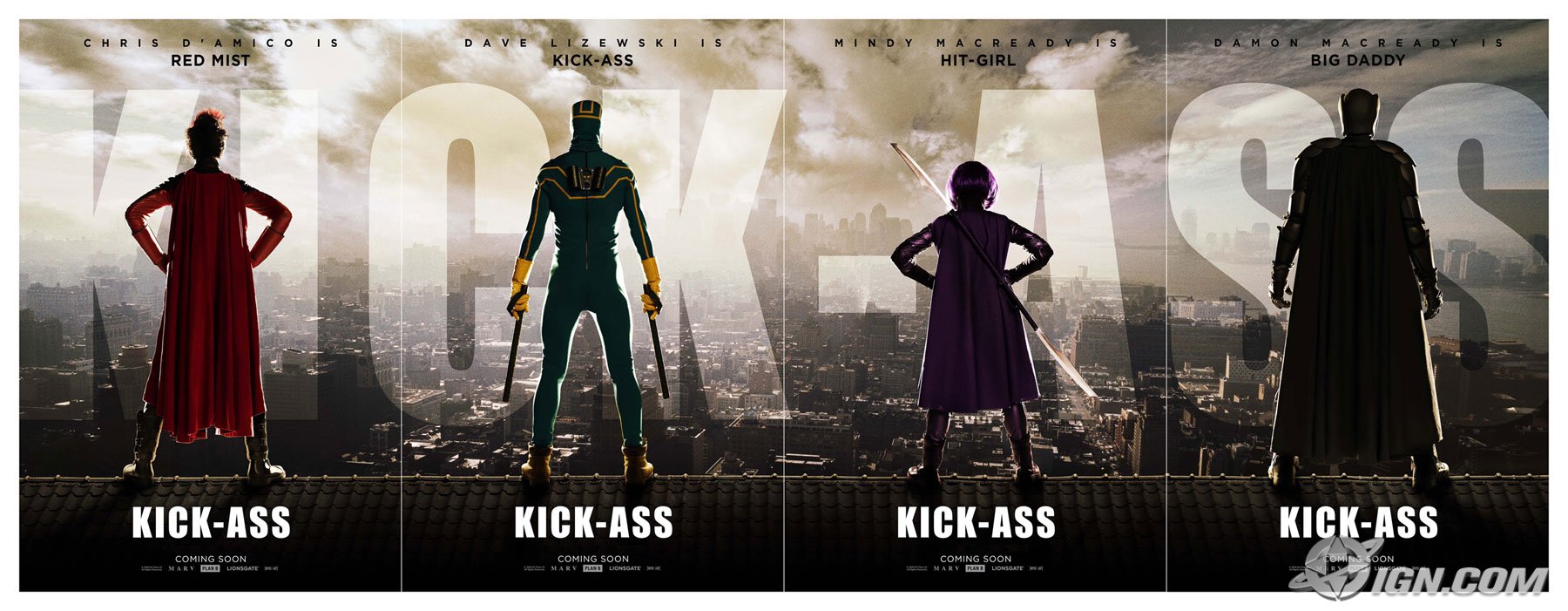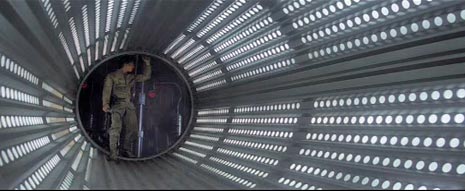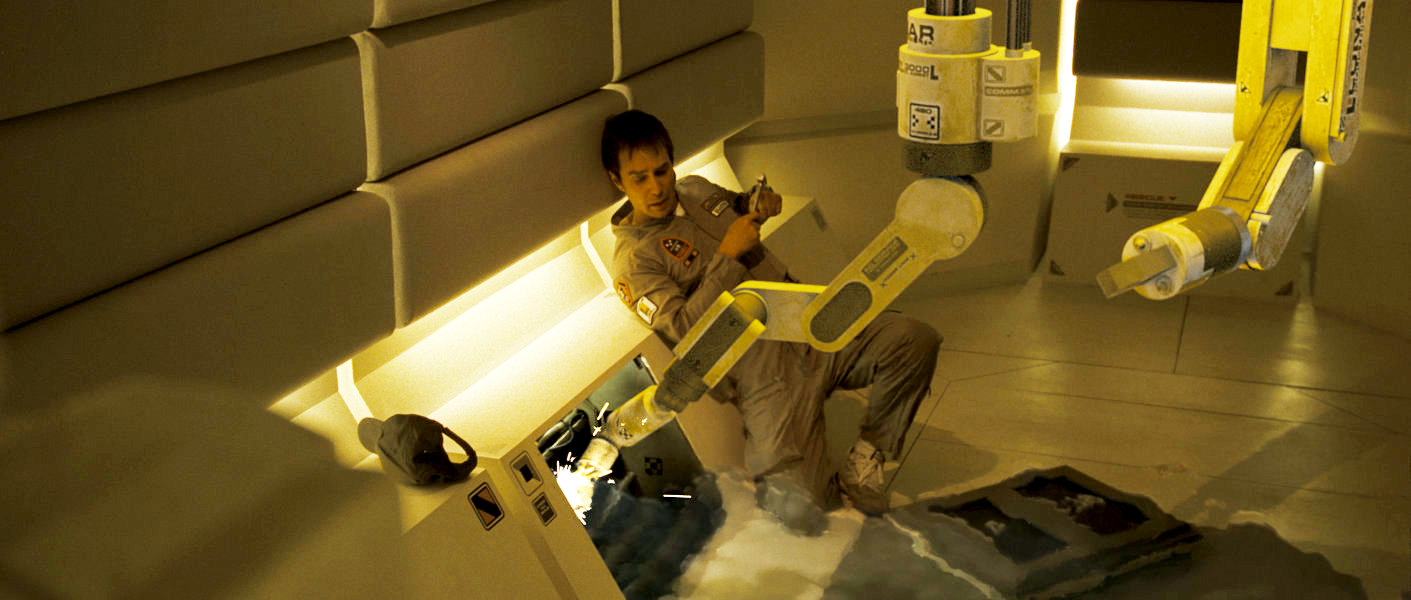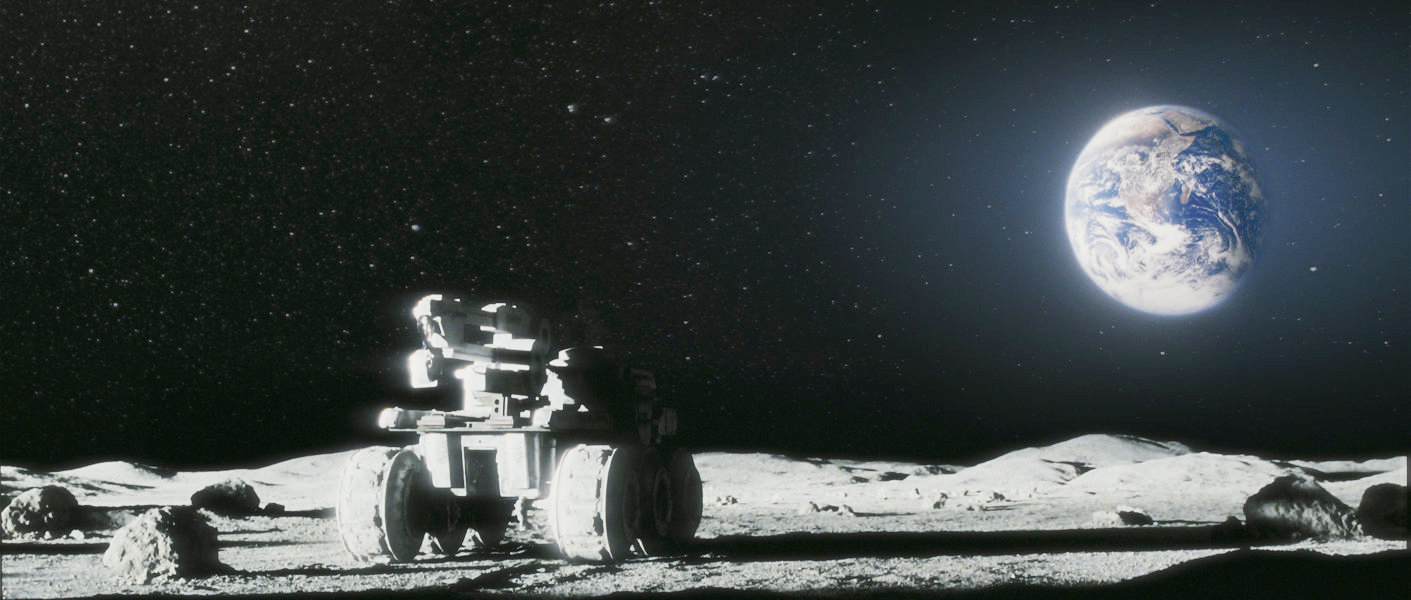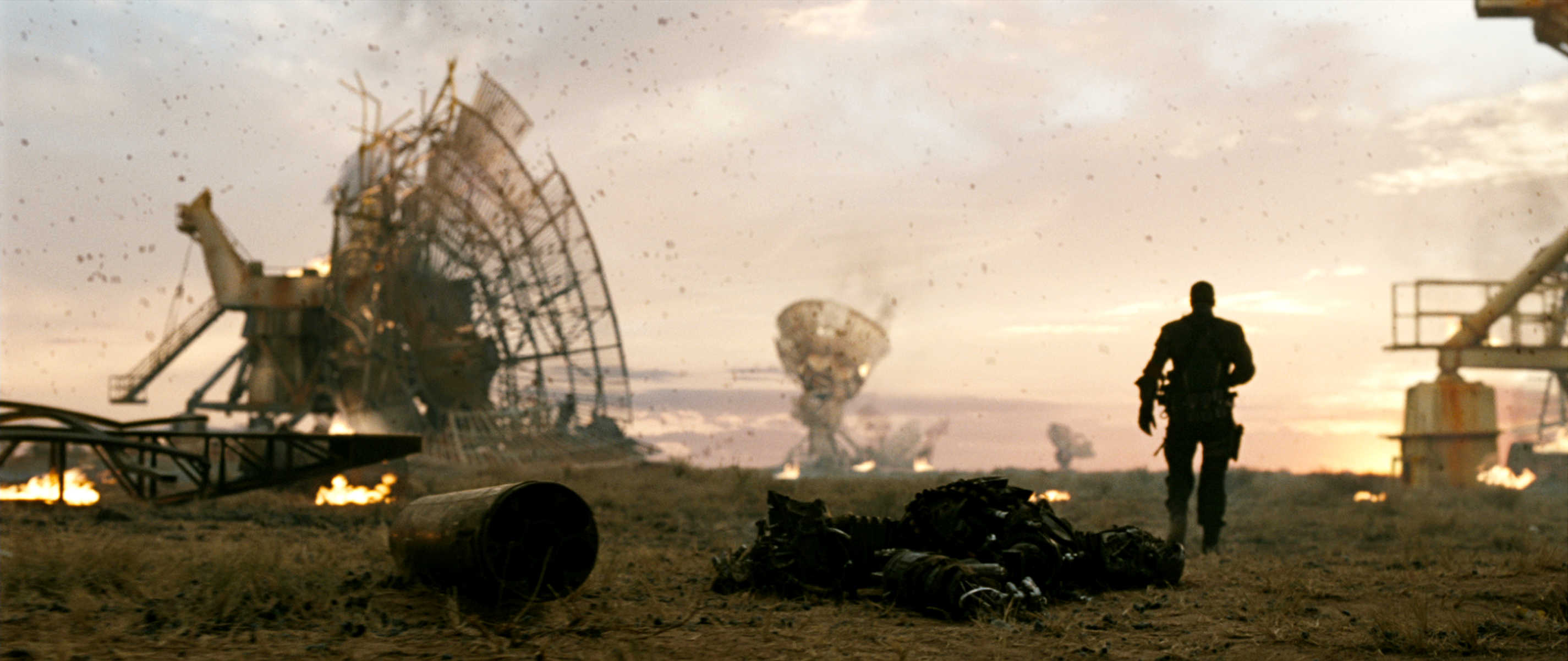 “This is John Connor. We’ve been fighting a long time. We are outnumbered by….zzzz
“This is John Connor. We’ve been fighting a long time. We are outnumbered by….zzzz” Well, I’ve been doing my darnedest this year to skip the Big Summery Movies that are pretty obviously subpar. (Hence, no
Wolverine or
Angels & Demons reviews here — Not after
X3 and
The Da Vinci Code.) But, in a moment of weakness, I did happen to catch
McG’s Terminator: Salvation a week or so ago. And…well…if you figure this is a fourth movie in a twenty-five-year-old franchise about time-traveling killer robots, and it was made by a grown man who calls himself “McG,” it’s mostly harmless, I guess. (And let’s face it: The zinger ending notwithstanding,
Terminator 3 wasn’t much to write home about either.) Still, if
barely passable as a mindless, incoherent, two-hour explosion-fest,
T:S gets considerably more disappointing when held against the Cameron
Terminators. And, particularly coming as it does after
Star Trek,
T:S feels at best like a blown opportunity, and at worse just a blatant,
Transformers-style cash grab. As a younger John Connor
was once wont to say, “Easy money.”
The year is 2018 — yes, only nine years from now — and, as foreordained since the very first Terminator back in 1984, John Connor (Christian Bale) and the scattered remnants of Humankind are battling for survival against the mechanized minions of Skynet. (And, with an air force and nuclear subs at their disposal, the humans are actually doing quite a bit better than we all ever expected.) But, wait…first, it’s 2003, and death row inmate Marcus Wright (Sam Worthington, soon of Cameron’s Avatar) is being given the hard sell by a cancer-ridden doctor (Helena Bonham Carter) to donate his body to science…namely, good old Cyberdyne Systems. (And with Worthington forced to deliver groaners like “Now I know what death tastes like” after a farewell kiss, Dead Man Walking this isn’t.)
Anyway, Marcus signs the dotted line, which undercuts a good bit of the drama when he awakens fifteen years later, after Judgment Day, and has no idea what’s going on. (Ok, all the trailers had already blown that particular spoiler wide open anyway.) In any event, Marcus soon falls in with a resourceful teenager, Kyle Reese (Anton Yelchin), and his — I kid you not — mute child companion (Jadagrace). As this unlikely trio venture through Southern California avoiding androids — they mostly come out at night, mostly — John Connor and his crack military team attempt to find his future father, figure out why Skynet is now taking so many human prisoners, and deploy a possible game-changing sonar device that seems to work as a universal Off switch. Will it work, and cripple Skynet for good? Well, considering we still have eleven more years before the (future) events of the first film, it’s safe to say there’s probably gonna be a few snags…
Even if you’re not all that cognizant of the Terminator backstory, it won’t take long to realize that the story we were expecting to see — John Connor sends his father, Kyle Reese, on a doomed mission into the past — is not being told here. In that sense, Terminator: Salvation plays a lot like another unnecessary-feeling sci-fi prequel to the prequel, The Phantom Menace. (That goes double once you start thinking of Marcus, Connor, and Reese as the Qui-Gon, Obi-Wan, and Anakin of this outfit respectively.) And, like Menace, the stakes here feel surprisingly low, mainly because we know a lot of these characters have a future (or, in Reese’s case, past) date with destiny, and that it isn’t being covered here mainly so that the powers-that-be can make some extra coin at some point in the future.
The problem is, after a movie this poorly written, who’s going to bother showing up? I know it’s useless to continue railing about the same sad old thing, but, really — how does a script this shoddily written ever get off the ground? Isn’t there any sort of quality control that goes into making a $100 million+ flick? I already mentioned one of the many horrible lines scattered throughout this movie, but that’s just that the tip of the iceberg. Every character in this movie is a one-note affair, from the Big Three down to folks like Bryce Dallas Howard (the supportive hug-giver), Common (the GI with a dead brother), and Michael Ironside (the skeptical higher-up). The leaps of logic required throughout this film make time travel seem eminently plausible. (Why isn’t Skynet’s “asset” activated sooner? How did Bale get on that sub? How are the robots missing that not-so-secret army base? Does that gimongous Transformer people-grabber thing have a stealth mode or something?) At one point, to get it across that Marcus is a stand-up guy, we actually have an interlude involving a gang of rapists out of Deliverance — I mean, how lazy can you get? And the climax — in which all the main characters run around Skynet HQ without much purpose — just makes no sense at all. (Nor does the ending, or, for that matter, the original ultra-dark ending, which for all its bravura would’ve screwed up the timeline something fierce.) And I did mention the mute kid, right? Hoo boy.
So, what’s good? Well, despite the pitiful writing, the three main characters are all pretty watchable, even if Bale spends the entire movie in raspy monotone mode. (I like Bale as an actor quite a bit, but those folks who say he’s “slumming” it by making this movie clearly never sat through Reign of Fire or Equilibrium. The man, power to him, has never been above slapdash genre outings.) Sam Worthington isn’t given much to do but act pained and stoic, but he has presence, and I could see him being a A-lister if given the right material. And Anton Yelchin’s star continues to rise after Star Trek — he’s easily the most appealing figure in the movie, and comes across as a more feral and dangerous version of Elijah Wood. (Dare I say, he’s Bilboesque? Well, maybe.) Finally, there’s a surprise cameo of sorts in the latter third that’s good for a solid fifteen seconds of real movie thrills, before it too degenerates into badly-thought-out nonsense. But in the grim post-Judgement Day future, I guess you take your movie moments where you can find them.
Also, the lighting? So not professional.

